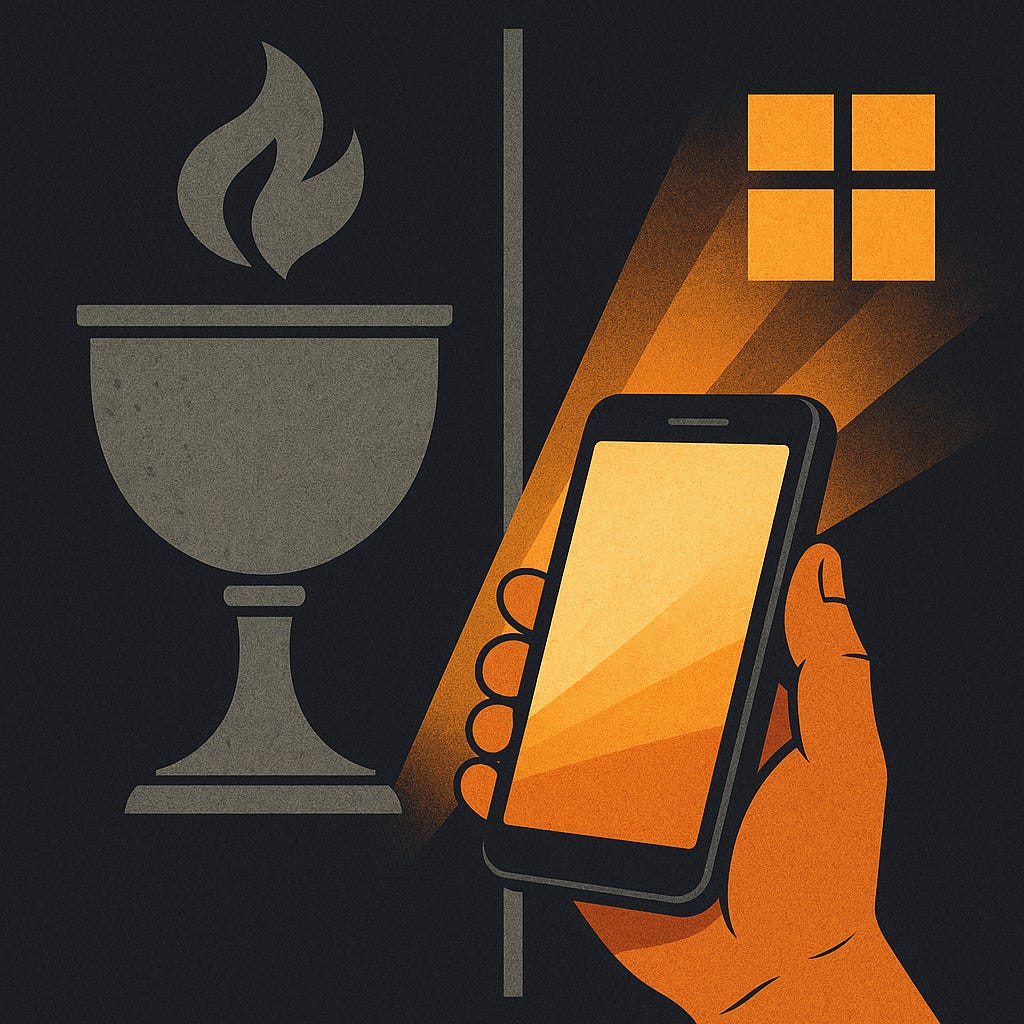Facing the Digital Whirlwind
Authentic Faith When Technology and Judgment Collide
Recent reflections have navigated two clear themes: the tension between divine judgment and compassionate response (see The Cup and the Call, The Fury of Now), and the challenge of technology mediating presence and comfort (The Lamp in the Window, The Algorithm of Hope). These twin trajectories confront us as individuals and as churches: How do we stay faithful when judgment is in the air and digital surrogates beckon us with artificial warmth?
The Call Behind the Cup
Jeremiah’s prophecies bring a hard edge, focusing attention on the reality of consequence. Divine justice is not arbitrary; it reflects the relational order God establishes (Jeremiah 25:15-32, NLT). His “cup” is a symbol, not only of retributive justice, but of accountability for persistent injustice and broken covenants. Yet these same prophets insist faithfulness must translate to compassion and action, not paralyzing fear. Jesus’ instructions in Matthew 10 ignite a counterpoint: instead of leveraging power, the faithful disciple brings healing, hospitality, and hope.
“In a world saturated with narratives of competition and control, Jeremiah’s stark imagery hints at something deeper: true strength lies not in dominating others, but in bearing their burdens and offering healing. We are called to be agents of restoration, not instruments of retribution.”
Many today experience this tension between judgment and compassion. Our anxieties—personal, societal, global—press for definitive action. The temptation is to react in judgment (on ourselves, on others), but the gospel path redirects: bear with, restore, heal.
The Digital Lamp: An Unsettling Substitute?
Community fractures are equally visible in technological fixes for emotional needs. AI wellness bots, digital companions, and self-help applications offer presence—but fall short of embodied relationship. The Lamp in the Window highlights the danger of confusing technological attentiveness for incarnational care. Technology, while offering tools, risks supplanting shared warmth with mechanistic routine or, worse, false intimacy. Presence must never be reduced to algorithm.
Practical Wisdom for Today
You must cultivate discernment. Judgment, whether divine or digital, is not the end. It calls forth repentance, solidarity, and renewed mission. Similarly, AI’s glow must not distract you from the work of actual ministry: presence, prayer, service. Your calling is not to abdicate responsibility to a program, nor to rest in critique alone. Instead:
Examine your own posture—are you more likely to act as judge or as healer?
Assess where you seek comfort: Is it from quick digital interaction or real human connection?
Reimagine your church as a hearth, not a series of lamps—how are you actively building embodied relationship?
Listen carefully: what competing narratives demand your allegiance? Does each align with God’s restorative vision, as seen in Jeremiah and the teachings of Jesus?
Explore how your community could employ technology only in ways that point back to and strengthen real presence.
Pulling Together
The whirlwind of change is real. Pressure increases, voices multiply, and comforts grow ever more artificial. Continue to listen, discern, and act. Embrace the hard work of compassion when judgment seems easier. Hold technology as tool, not substitute. Seek God’s presence—deep, true, embodied—in the middle of disruption. Your witness, both online and in person, has never been more needed.


